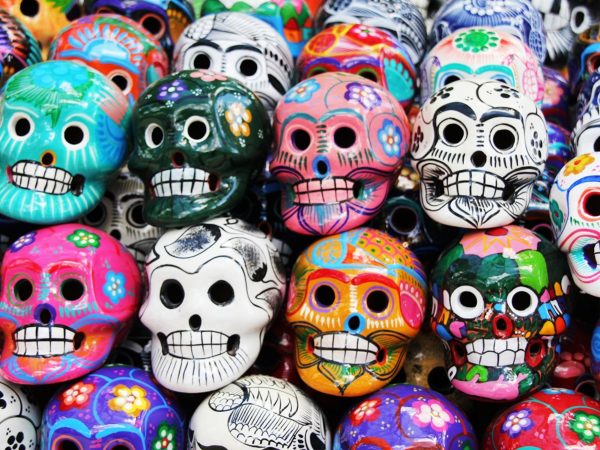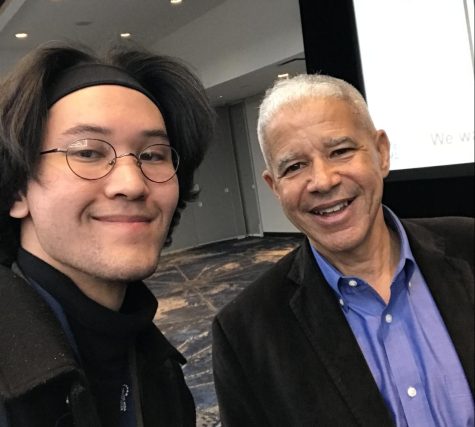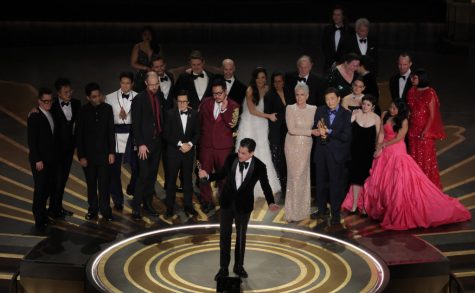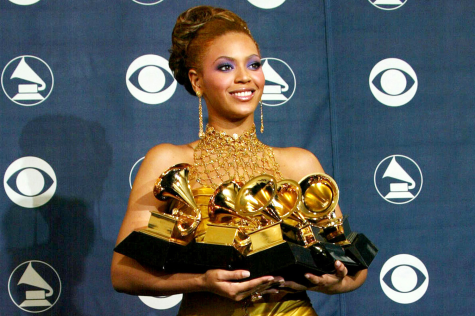Hustler film strips negative stereotypes
October 10, 2019
Life can pull us in different directions, and some of those directions lead to even more struggle. Sometimes, the struggles we go through cause us to make decisions or do things we may not want to do. This is the story for some of those who choose to become exotic dancers. While in the public eye, this may not seem like the most respectable position, exotic dancers embody what it means to “do what you gotta do.”
They preferred to be called “exotic dancers” by those in the strip club industry, but society primarily calls them “strippers”.
Exotic dancers are customarily known for getting paid a massive amount of money to dance provocatively in front of men for a living.
Lorene Scafaria is one of the women behind the new 2019 American Crime Film “Hustlers”, starring two A-list actresses, Constance Wu and Jennifer Lopez.
The main aspect of the film is about two big time strippers stealing money from important Wall Street men. However, “Hustlers” did not depict stripping as glamorous nor did it curate it to be a negative occupation.
Instead, the film displayed a small snippet of the reality of strippers. It portrayed a better understating of the life of exotic dancers.
Scafaria wrote the movie “Hustlers” and claimed to be inspired by Jessica’s Pressler’s 2015 New York magazine article, “The Hustlers at Scores,” who at that time interviewed both of the real-life leaders behind the scandal.
The films masterminds Roselyn Keo and Samantha Barbash were both accused of allegedly drugging Wall Street men and stealing their credit cards while performing sexually explicit acts in New York City’s Gentleman’s Clubs.
Striptease dancing or “stripping” has been a long-time profession in the sex industry. In fact, the first appearance of stripping for money can be found in the Bible, where the daughter of the Jewish Princess Herodias performed the “Dance of Seven Veils” for King Herod.
Exotic dancers have had to face the negative stigma due to the heavy influence of the rap and hip-hop music media; society looks down upon and delegitimize the profession.
Poppy, who has chosen not to give her full name, has been an exotic dancer since the age of 21.
“I [have] dealt with the negativity the second I came out [as a stripper] to my friends, family, and followers. I knew what I was signing up for [and] the negativity will never stop as long as there [are] people with opinions [on the industry],” said Poppy.
Before “Hustlers” came out, other films portrayed strip clubs to be an immoral business, where dancers are only into sex, drugs, and money.The reality of it is stripping is a rightful occupation for women.
“Hustlers” aspires to inspire audiences to think differently about exotic dancers by humanizing them in the film.
For example, both main characters were family-oriented and one character was even disowned by her family while the other characters were in the industry to survive. Individuals can easily relate to situations such as these. When an issue becomes personal, a person has a tendency to change their mindset.
“I liked the thought of getting pretty and wearing super high heels and getting paid for it. When I was little, I used to put on my mom’s Pleaser high heels. [She] stripped when she got pregnant with me [and] so she had to hustle and make money quick,” said Poppy, explaining her first encounter with stripping.
“Hustlers” can start a new wave of thinking of normalizing exotic dancing as a legitimate career and ending the negative stigmatization surrounding the profession.















